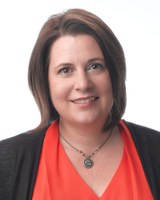Contacts: Kathlin Smith
 Boston, MA, and Washington, DC, August 7, 2014-The Digital Public Library of America (DPLA) and the Council on Library and Information Resources (CLIR) announced today that the Director of the Digital Library Federation (DLF), Rachel Frick, will join DPLA as its Business Development Director.
Boston, MA, and Washington, DC, August 7, 2014-The Digital Public Library of America (DPLA) and the Council on Library and Information Resources (CLIR) announced today that the Director of the Digital Library Federation (DLF), Rachel Frick, will join DPLA as its Business Development Director.
DLF is a program of CLIR, and coordinates a large and diverse community of practitioners to help create innovative and widely useful digital resources such as DPLA. Prior to her tenure at CLIR/DLF, Frick held senior positions at the Institute of Museum and Library Services and the University of Richmond, among other roles. She is widely known in the library, archive, and museum world for her vision, organizational know-how, and commitment to open culture. She served as the co-chair of DPLA’s Content Committee during its initial planning phase.
“Adding someone with Rachel’s intelligence, insight, and connections to DPLA’s staff in this critical role of the Business Development Director is a tremendous boost to DPLA, and she knows our mission well from having been a leader during our inception. Personally, I have watched and admired Rachel’s work over the last decade, and greatly look forward to working closely with her to help DPLA reach a sustainable future,” said Dan Cohen, DPLA’s Executive Director. “Moreover, Rachel’s transition from DLF to DPLA will help to strengthen the collaboration between DPLA and CLIR, an organization in the vanguard of the library and information world.”
“Rachel’s astute leadership and acumen evolved DLF into a vital national organization where fundamentally important ideas can be translated into practical application for the benefit of higher education,” said CLIR President Chuck Henry. “Her appointment at DPLA is a logical extension of the compelling programs and projects she has developed at DLF, and we all look forward to a continuing collaboration in support of the broader public good.”
“I am looking forward to contributing to DPLA’s strategic mission, the challenge of ensuring its sustainability and forging extensive new relationships in order to build DPLA’s visibility, impact, and financial resources,” said Rachel Frick. “DPLA is an amazing and inspirational effort that I am very grateful for the opportunity to be a part of.”
Frick will begin work at DPLA on September 2, 2014. CLIR and DPLA will coordinate activities for a smooth and collaborative transition, including DLF’s upcoming annual Forum. In addition, the organizations plan to work together more closely given their shared missions.
About the Digital Public Library of America
The Digital Public Library of America (http://dp.la) strives to contain the full breadth of human expression, from the written word, to works of art and culture, to records of America’s heritage, to the efforts and data of science. Since launching in April 2013, it has aggregated over 7.4 million items from over 1,300 institutions. The DPLA is a registered 501(c)(3) non-profit.
About the Council on Library and Information Resources
The Council on Library and Information Resources (CLIR) is an independent, nonprofit organization that forges strategies to enhance research, teaching, and learning environments in collaboration with libraries, cultural institutions, and communities of higher learning. For more information about CLIR, visit https://www.clir.org/.
About the Digital Library Federation
The Digital Library Federation (DLF) is a robust and diverse community of practitioners who advance research, teaching, and learning through the application of digital library research, technology, and services. DLF is a resource and catalyst for collaboration among digital library developers, project managers, and all who are invested in digital library issues. The Digital Library Federation program serves its parent organization, the Council on Library and Information Resources as the place where strategy informs practice. Through DLF programs and support, the program connects CLIR’s vision and research agenda to an active practitioner network. For more information about DLF, visit http://www.diglib.org/.

